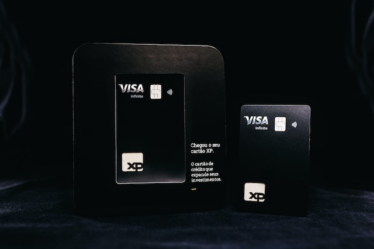
Embarking on an international journey requires careful planning, especially when it comes to managing your money abroad. One of the most overlooked aspects of travel preparation is understanding how to navigate currency exchange services effectively. With the right knowledge, you can avoid unnecessary fees and make your travel budget stretch further during your adventures.
Research exchange rates before your trip
Before setting foot on foreign soil, familiarising yourself with the current exchange rates between your home currency and your destination's currency is essential. The value of currency exchange services becomes apparent when you understand how rates can significantly impact your travel budget. Taking time to research typical rate ranges helps you identify good deals and avoid poor ones when you're abroad.
Understanding rate fluctuations and market trends
Exchange rates aren't static; they fluctuate daily based on global economic factors. A country's economic stability, interest rates, and political climate all influence its currency value. Being aware of recent trends can help you anticipate whether rates might improve or worsen during your trip. For instance, if you notice the pound has been strengthening against your destination's currency over several weeks, you might benefit from waiting a bit longer before exchanging your money.
Tools and Resources for Comparing Current Exchange Rates
Several reliable online resources can help you track and compare exchange rates. Currency converter websites and mobile apps provide real-time information on how currencies are performing against each other. These tools often display the mid-market rate, which is the fairest exchange rate before providers add their margins. By knowing the true rate, you can better evaluate the offers from various currency exchange services and banking options, ensuring you're not being taken advantage of when you eventually need to exchange your money.
Avoid airport and tourist area currency exchanges
One of the costliest mistakes travellers make is relying on airport kiosks or exchanges in popular tourist areas for their currency needs. These locations typically offer exchange rates that are 10-15% worse than what you might find elsewhere, resulting in a significant loss of your travel funds before your holiday properly begins.
Why tourist spots offer unfavourable exchange rates
Currency exchanges in airports and tourist hotspots capitalise on traveller convenience and urgency. They understand that many visitors arrive unprepared and need local currency immediately for transportation, food, or accommodation. This captive market allows these exchanges to offer poor rates while still attracting customers who have limited options. Additionally, these businesses often face higher operating costs due to prime location rents, which they pass on to customers through less favourable exchange terms.
Finding legitimate alternatives with better rates
Instead of settling for tourist trap exchanges, seek out currency services in more local areas. Banks and dedicated currency exchange offices away from tourist centres typically offer more competitive rates. Many travellers have found success by asking locals or hotel staff for recommendations on trustworthy exchange locations. Reputable online services also allow you to order currency before your trip at better rates than you'd find at the airport, though it's wise to compare these against other options to ensure you're getting a good deal.
Smart card usage whilst abroad
Your debit and credit cards can be valuable tools for managing money abroad, often providing better value than cash exchanges if used wisely. However, not all cards are created equal when it comes to foreign transactions, and choosing the right ones can make a substantial difference to your travel budget.
Selecting the Right Debit or Credit Cards for Travel
Before travelling, review your current cards' foreign transaction policies. Some credit cards specifically designed for travel offer no foreign transaction fees and competitive exchange rates close to the mid-market rate. These cards often provide additional travel benefits like travel insurance or airport lounge access. For debit cards, look for those that belong to global ATM networks with partnerships in your destination country, as these may offer reduced or waived ATM fees abroad.
How to minimise foreign transaction fees
To keep card-related costs down while travelling, always choose to pay in the local currency when given the option at payment terminals. Selecting your home currency triggers a service called Dynamic Currency Conversion, which typically includes poor exchange rates and additional fees. Also, limit the number of ATM withdrawals by taking out larger amounts less frequently, though balance this with safety considerations about carrying cash. Some travellers also benefit from notifying their bank of travel plans to prevent cards from being flagged for suspicious foreign activity.
Making the Most of ATMs in Foreign Countries
ATMs often provide a convenient and relatively cost-effective method for accessing local currency during your travels. However, being strategic about which ATMs you use and when you withdraw money can help you avoid unnecessary fees and get better exchange rates.
Identifying atms with lower withdrawal charges
Not all ATMs treat foreign cards equally. Independent ATMs found in shops, restaurants, or tourist areas typically charge higher fees than those operated by major banks. These machines might also offer less security against card skimming devices. When possible, seek out ATMs attached to reputable banks, preferably during business hours in case you encounter any issues with your transaction. Some ATMs also clearly display their fees before you complete a transaction, allowing you to cancel if the charges seem excessive.
Bank partnerships that reduce international fees
Many banks have global partnerships or belong to international ATM networks that offer reduced or eliminated fees for their customers. Before travelling, research whether your bank has partner institutions in your destination country. Some banks refund ATM fees incurred abroad or offer accounts specifically designed for international travellers with benefits like fee-free withdrawals. These partnerships can result in significant savings, especially for longer trips or visits to multiple countries where ATM access is frequent.
Travel Money Cards as a Secure Option
 Prepaid travel money cards have gained popularity as a secure alternative to carrying cash or using standard debit and credit cards abroad. These specialised cards allow you to load your own money in advance, often in multiple currencies, providing both convenience and peace of mind.
Prepaid travel money cards have gained popularity as a secure alternative to carrying cash or using standard debit and credit cards abroad. These specialised cards allow you to load your own money in advance, often in multiple currencies, providing both convenience and peace of mind.
Comparing different prepaid travel card offerings
The market for travel money cards has expanded significantly, with options now available from banks, post offices, and dedicated financial services companies. When evaluating these cards, consider factors beyond just the exchange rates offered. Look at reload fees, ATM withdrawal charges, inactivity fees, and whether the card charges for purchases. Some cards, like the Post Office Travel Money Card, support up to 22 different currencies, making them particularly useful for multi-country trips. Others might excel in customer service or offer mobile apps with helpful features for tracking expenses.
Loading strategies to maximise value
To get the most from your travel money card, time your currency loading strategically. Monitor exchange rates in the weeks before your trip and load more when rates are favourable. Some travellers load their cards incrementally rather than all at once to take advantage of rate fluctuations. Consider loading only what you expect to need for the first portion of your trip, keeping the option to add more funds later if exchange rates improve. Most reputable cards allow online or app-based top-ups, giving you flexibility to manage your travel funds remotely as your trip progresses.
Monitoring exchange rate movements
Exchange rates are constantly in flux, influenced by economic indicators, political events, and market sentiment. For travellers, these movements can significantly impact the value of their money abroad, making rate monitoring an essential part of travel financial planning.
Timing your currency exchanges for better value
Strategic timing can substantially affect how much foreign currency you receive for your money. If your travel dates are flexible or planned well in advance, you might have opportunities to exchange when rates are particularly favourable. Many experienced travellers avoid exchanging all their money at once, instead converting portions as needed throughout their trip to mitigate the risk of rate fluctuations. This approach requires some monitoring effort but can result in better overall value, especially for longer journeys or when visiting countries with volatile currencies.
Setting rate alerts to track favourable changes
Several financial apps and websites offer customisable rate alert services that notify you when exchange rates reach your desired levels. These tools can save you from having to check rates manually each day and ensure you don't miss opportunities for advantageous exchanges. Some alerts can be set to trigger when rates improve by certain percentages or reach specific thresholds you determine. These services are particularly useful for travellers planning trips months in advance, allowing them to secure favourable rates when they appear without constant monitoring.
Choosing reputable currency exchange providers
Not all currency exchange services operate with the same level of reliability, transparency, or value. Selecting trustworthy providers is crucial for ensuring you receive fair rates and avoid potential scams or hidden fees that can diminish your travel budget.
Researching and vetting exchange services
Before committing to any currency exchange service, conduct thorough research about their reputation and reliability. Online reviews, traveller forums, and recommendations from friends can provide insights into others' experiences. Legitimate providers should display their rates clearly, explain any fees transparently, and provide proper receipts for transactions. Be wary of street vendors or unofficial exchanges that might offer seemingly attractive rates but operate without proper licenses. These unofficial services might provide counterfeit currency or simply disappear with your money.
Negotiating better rates for larger exchanges
Many established currency exchange services are willing to offer improved rates for larger transactions. If you're exchanging substantial amounts, don't hesitate to ask if better rates are available. Some providers have tiered rate structures that automatically improve as the exchange amount increases, while others may have room to negotiate, especially if you're a repeat customer. Building a relationship with a specific exchange service can also lead to preferential treatment and better rates over time, which is particularly beneficial for frequent travellers to the same destination.
Strategic currency management throughout your trip
How you manage your currency during your travels can be as important as the initial exchange decisions you make. A thoughtful approach to handling your money while abroad helps maximise its value and minimise security risks.
Exchanging Money in Smaller Batches as Needed
Rather than converting large sums at once, consider exchanging money in smaller amounts throughout your journey. This approach provides several advantages: it reduces the risk of carrying excessive cash, allows you to take advantage of potentially improving exchange rates, and minimises leftover foreign currency at the end of your trip. It also gives you flexibility to adjust your budget as you learn more about local costs and your spending patterns in the destination. When crossing borders between different currency zones, this incremental approach helps prevent accumulating coins that are typically difficult or impossible to exchange later.
Balancing cash holdings with card payments
Finding the right balance between cash and card payments enhances both convenience and security during international travel. While cash is essential for small merchants, markets, and remote areas where card acceptance might be limited, relying exclusively on paper currency creates security concerns. A balanced approach might involve keeping a day's worth of spending money in an accessible but secure location, while storing larger reserves in your accommodation safe or distributed across secure pockets in your luggage. Using cards for larger purchases provides an additional layer of protection through transaction records and potential dispute mechanisms, while cash remains practical for smaller daily expenses where card minimums or fees might apply.



